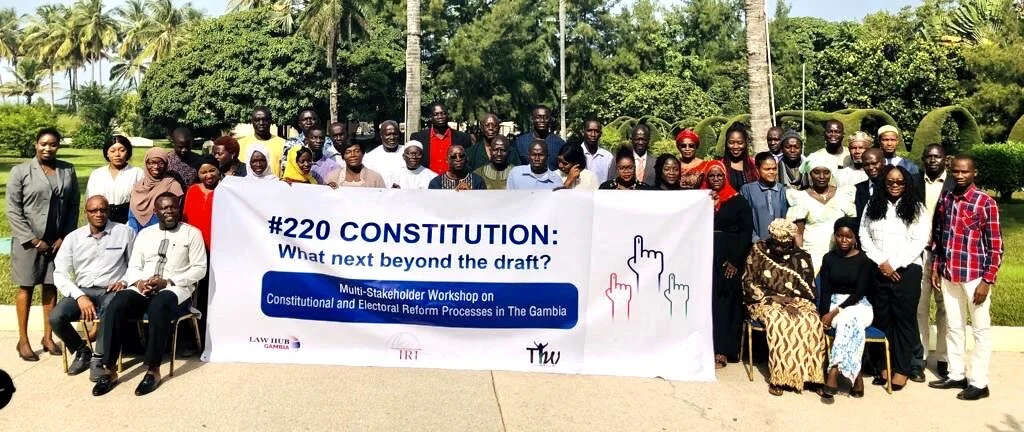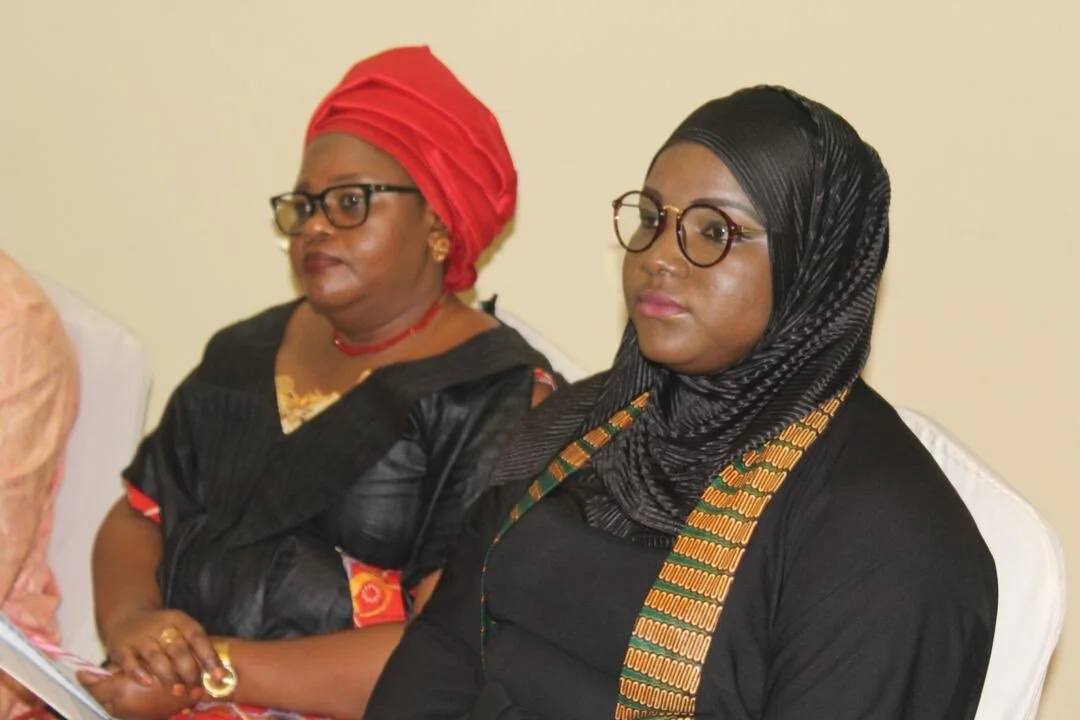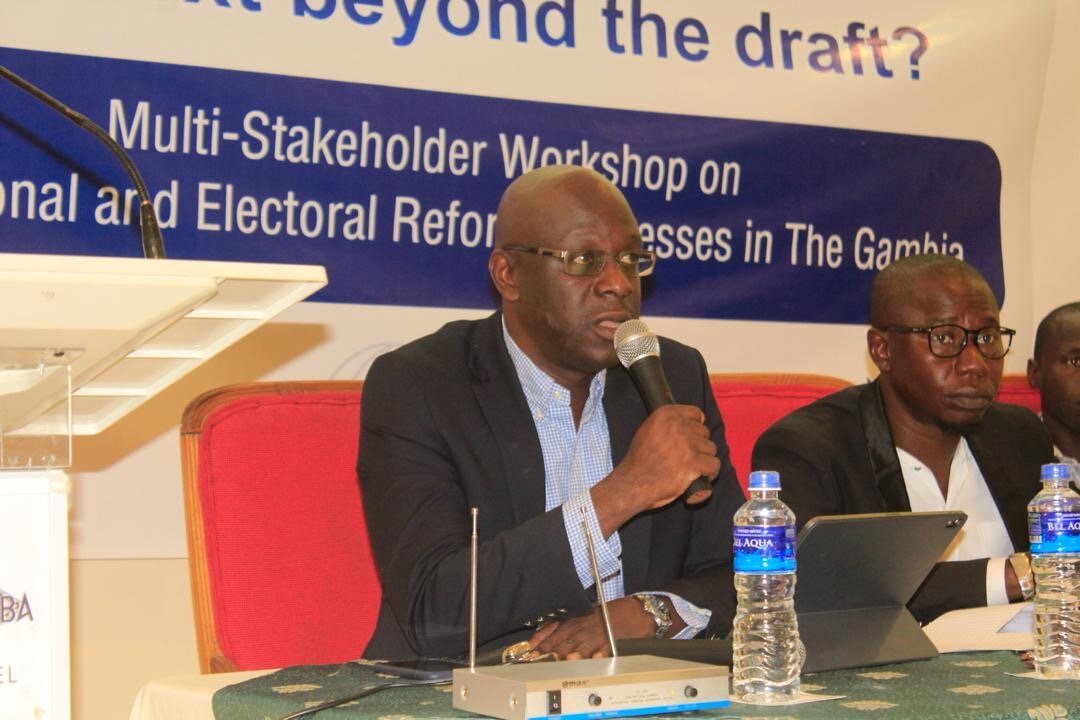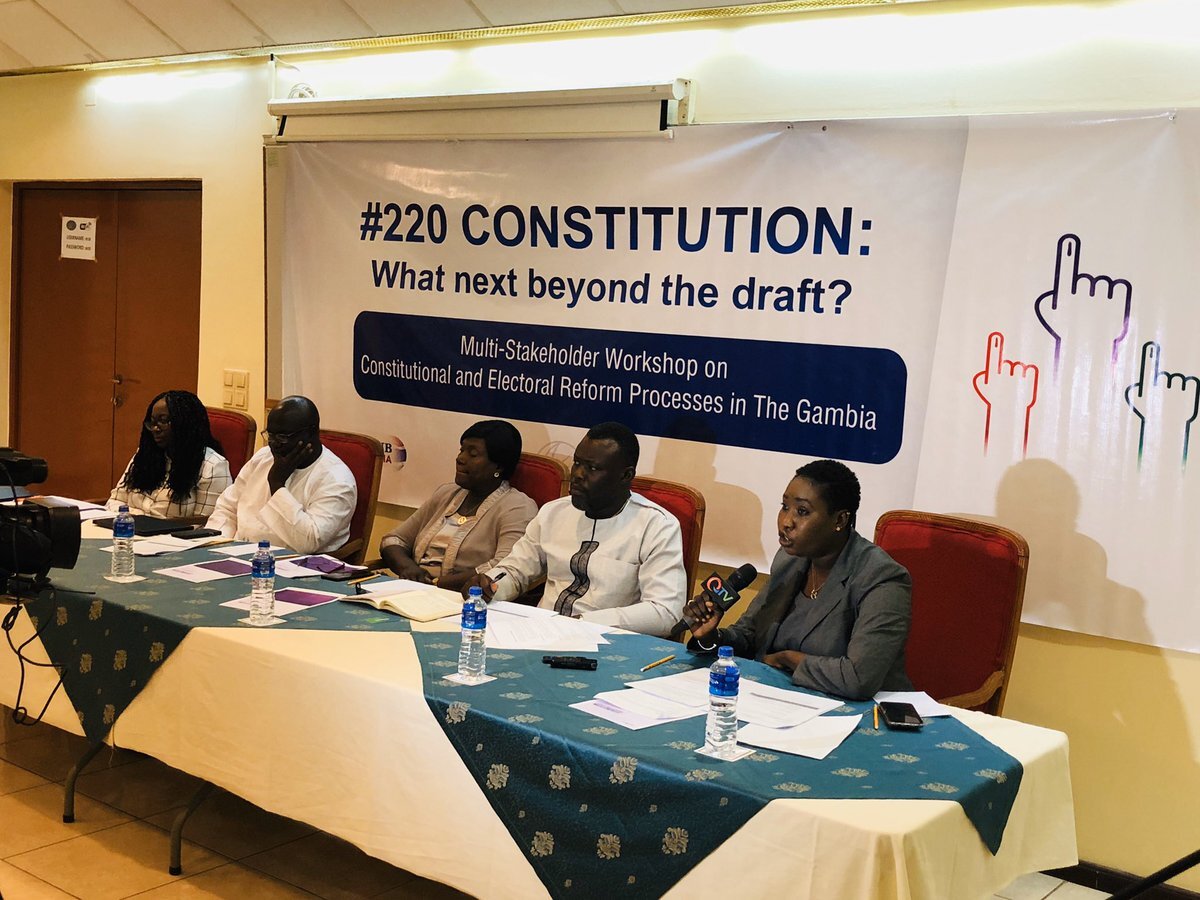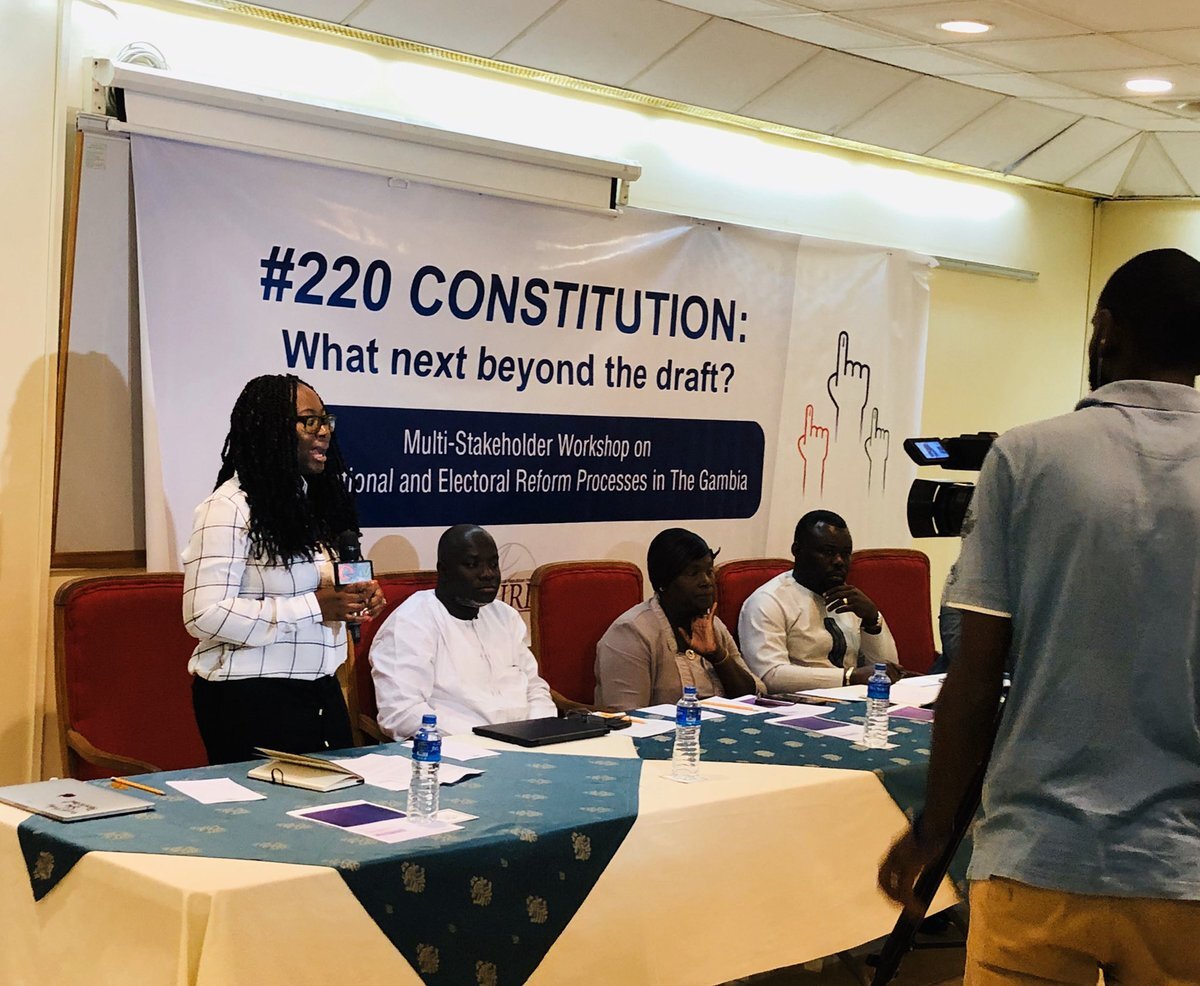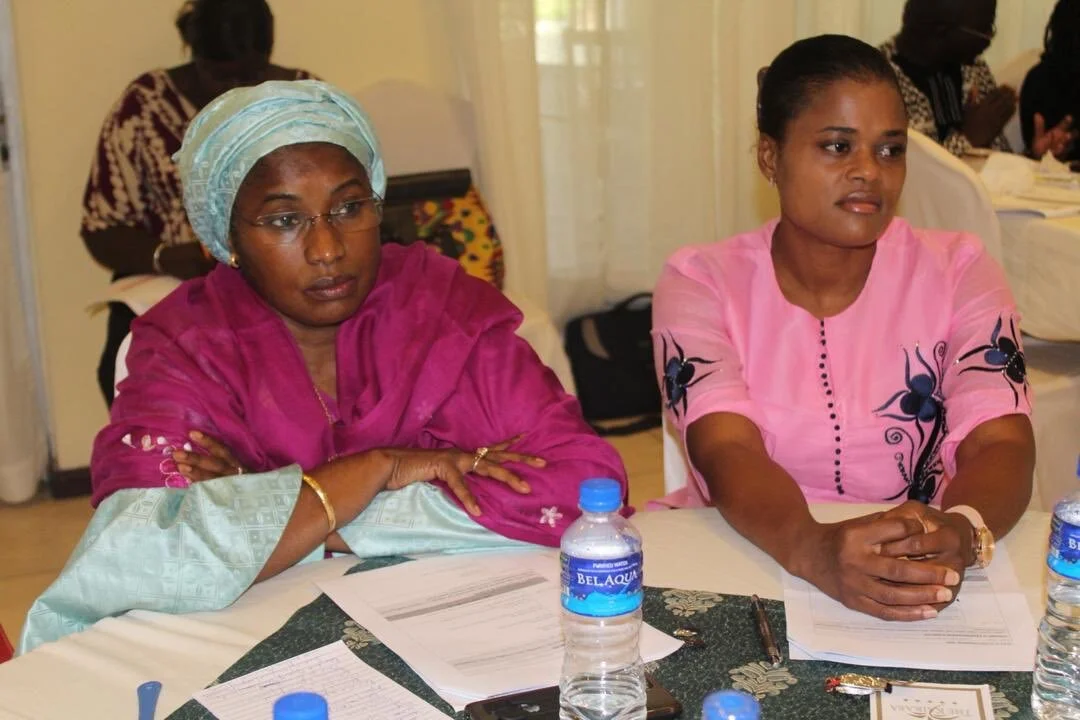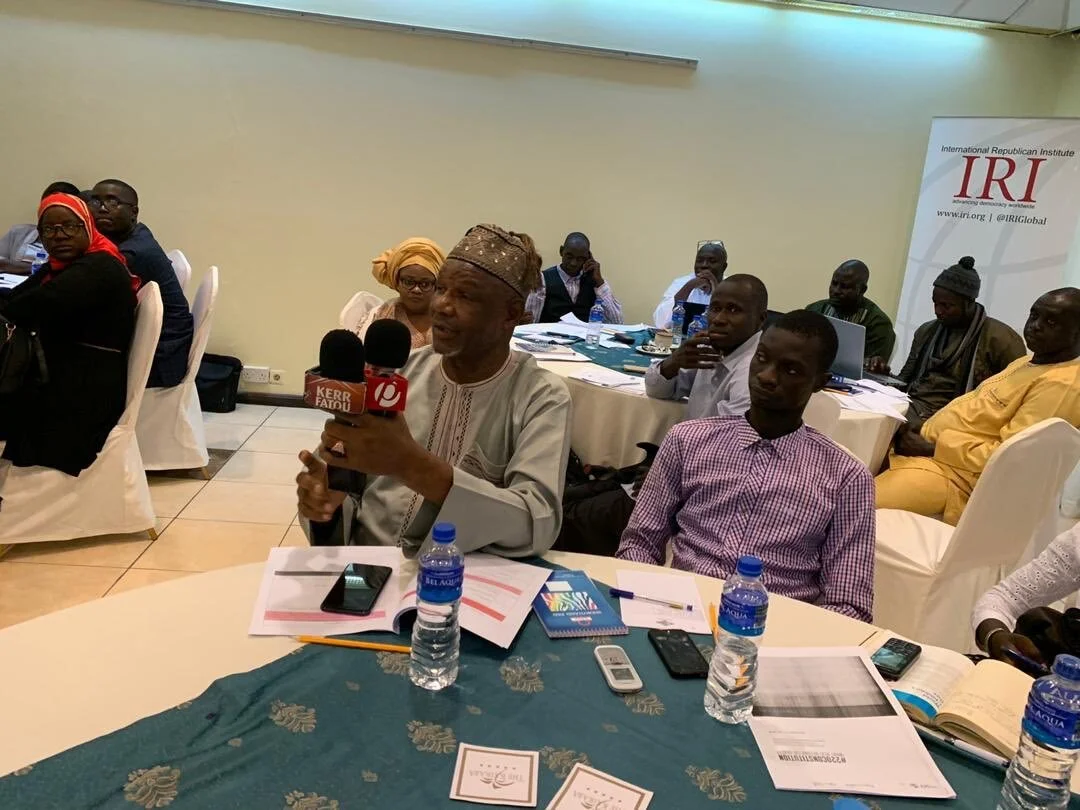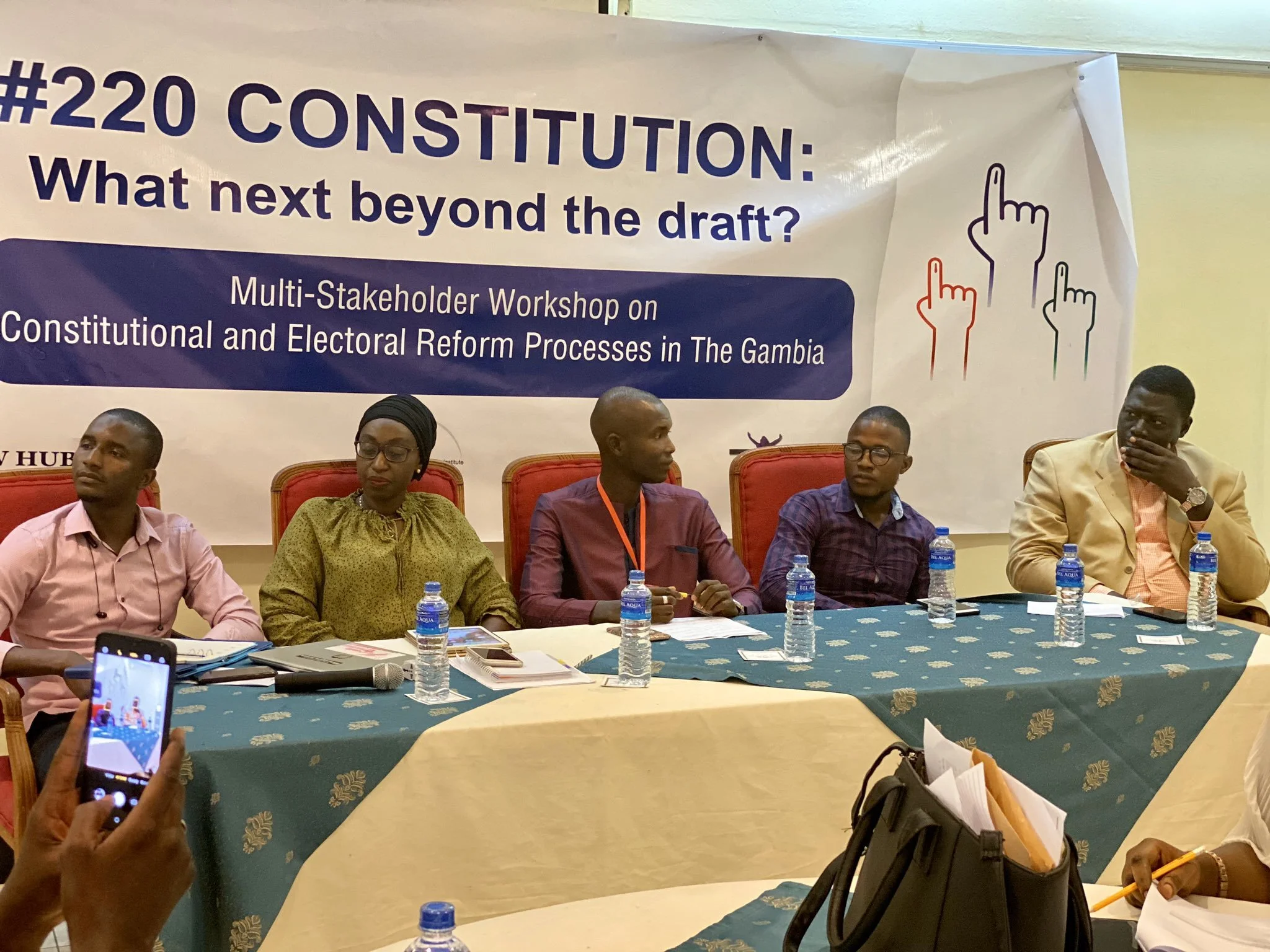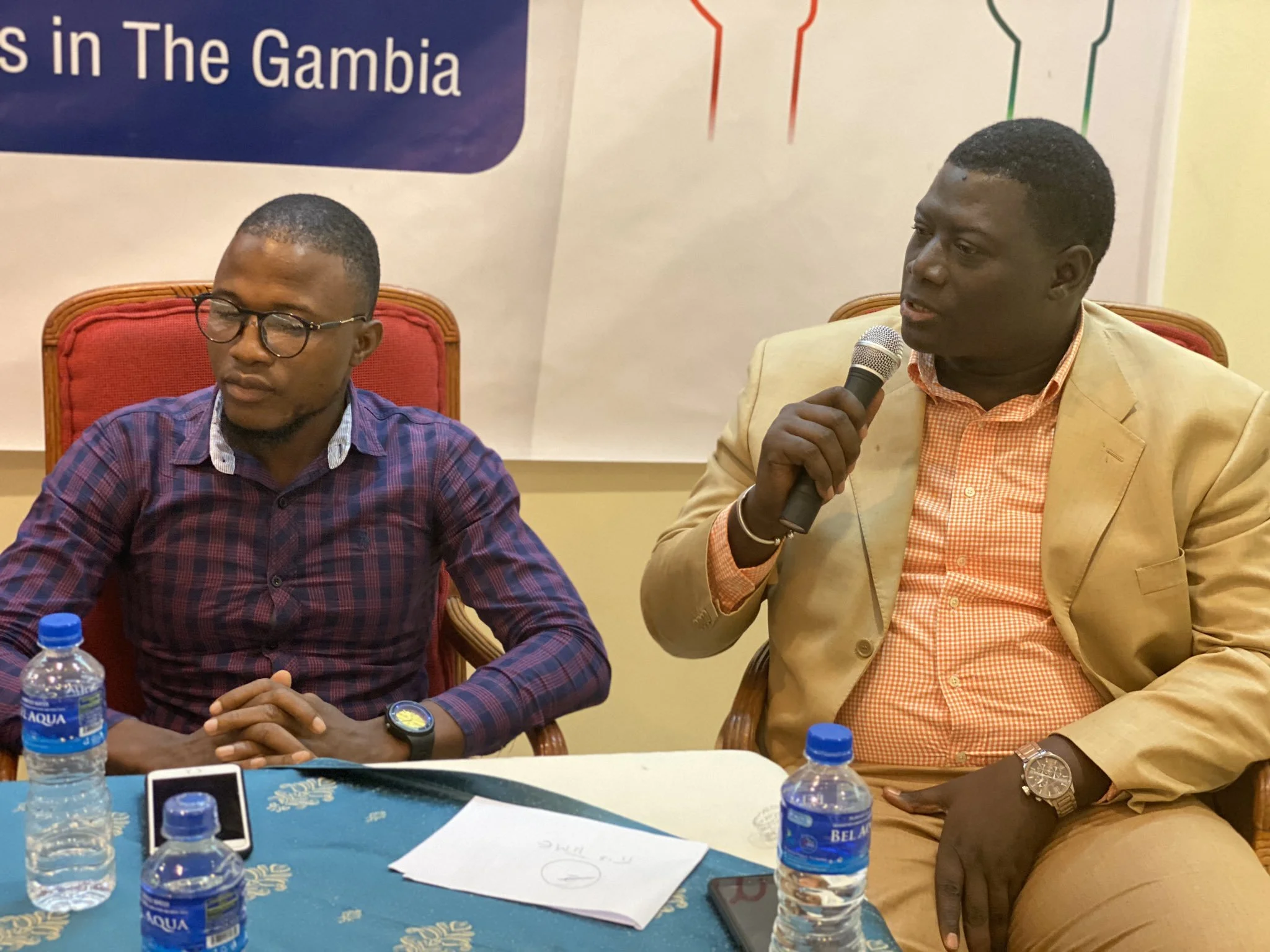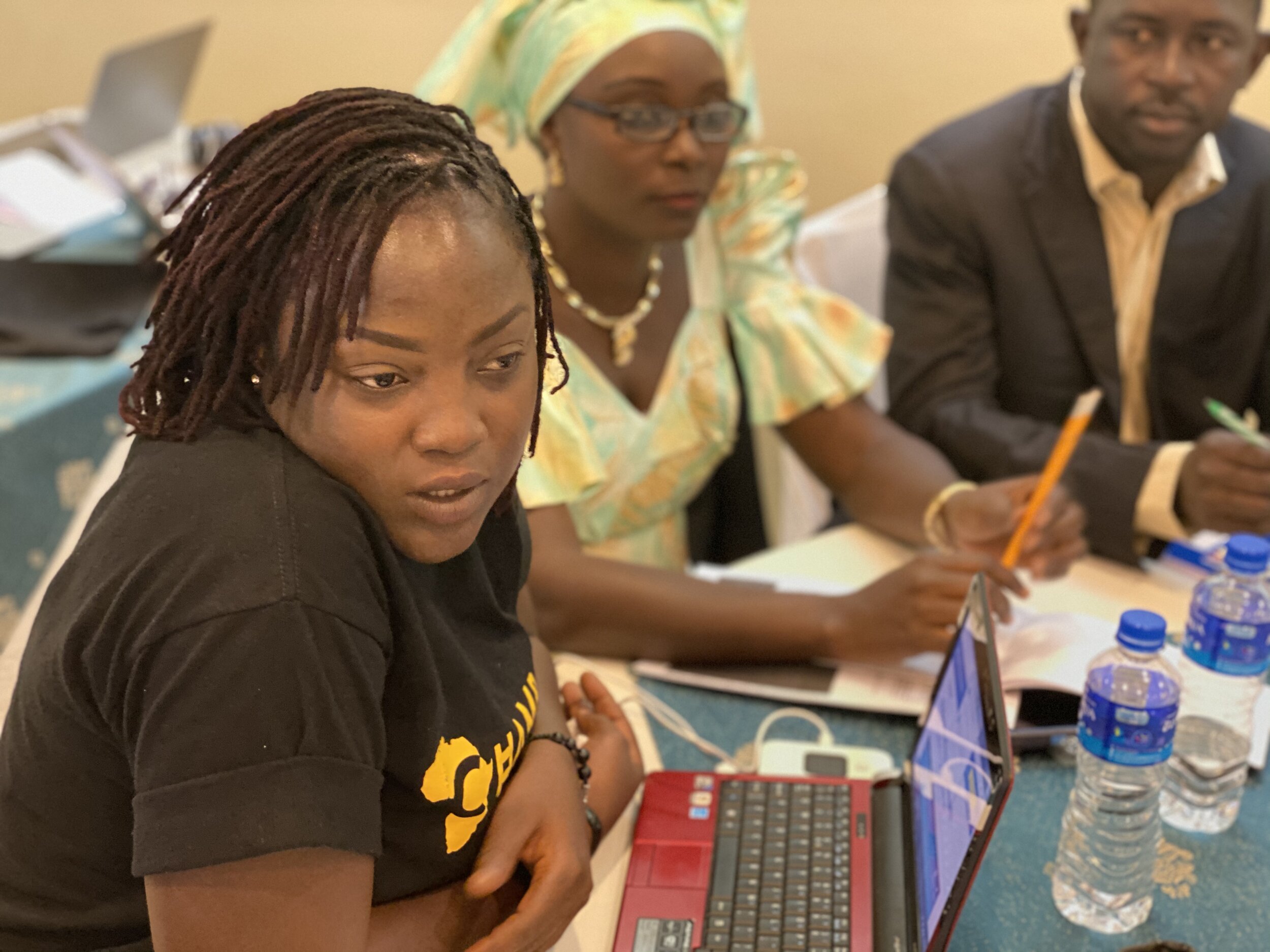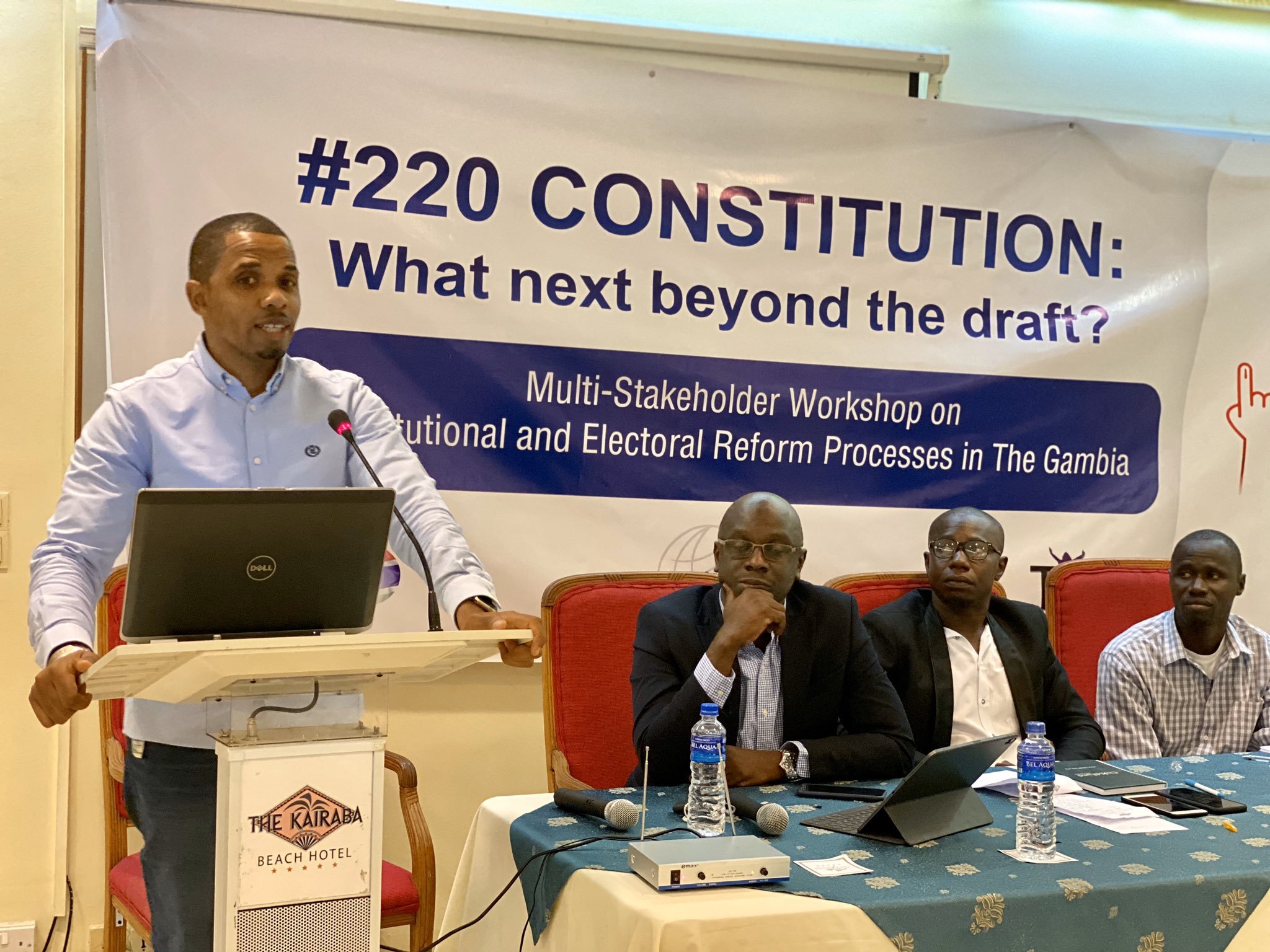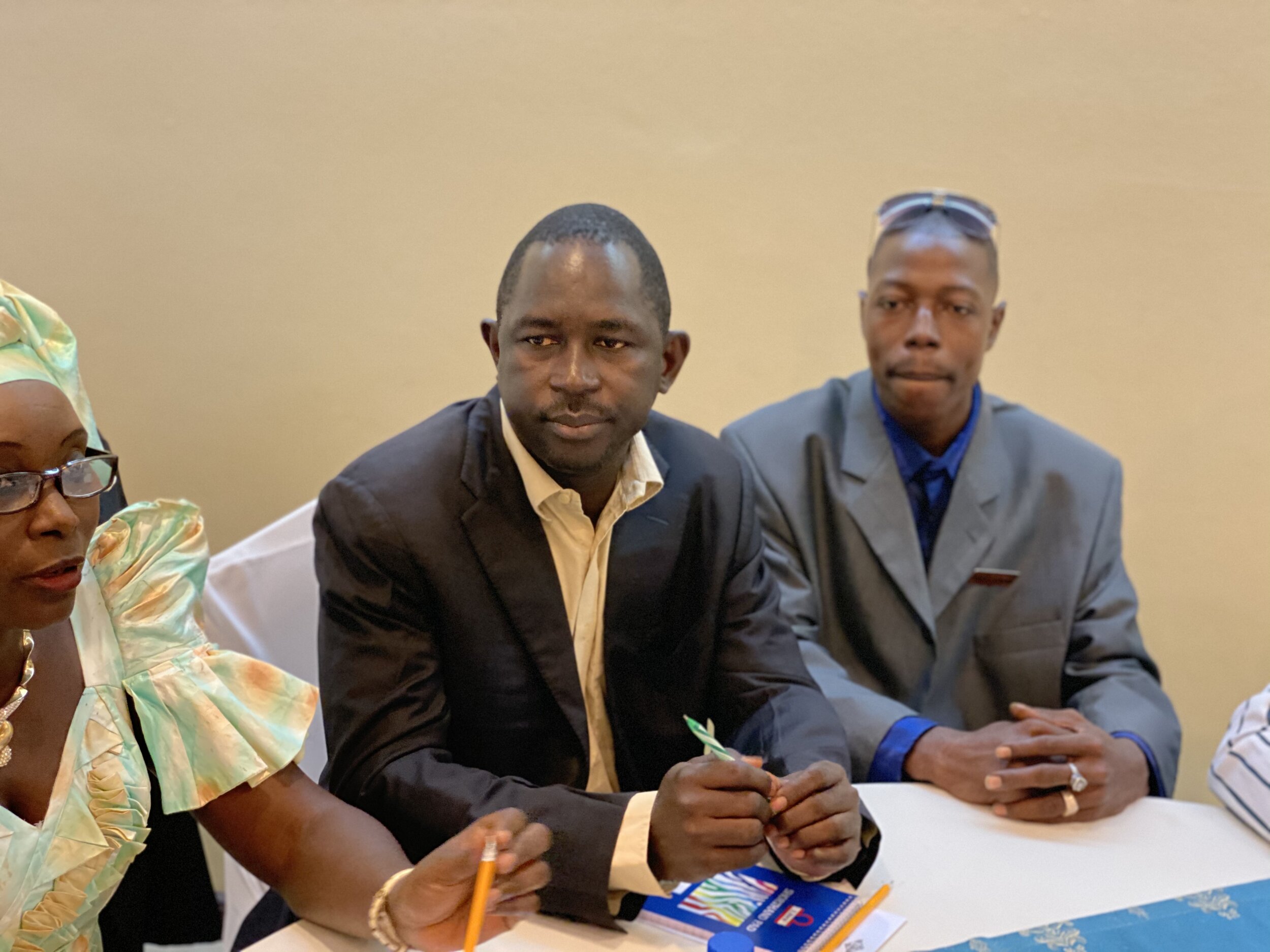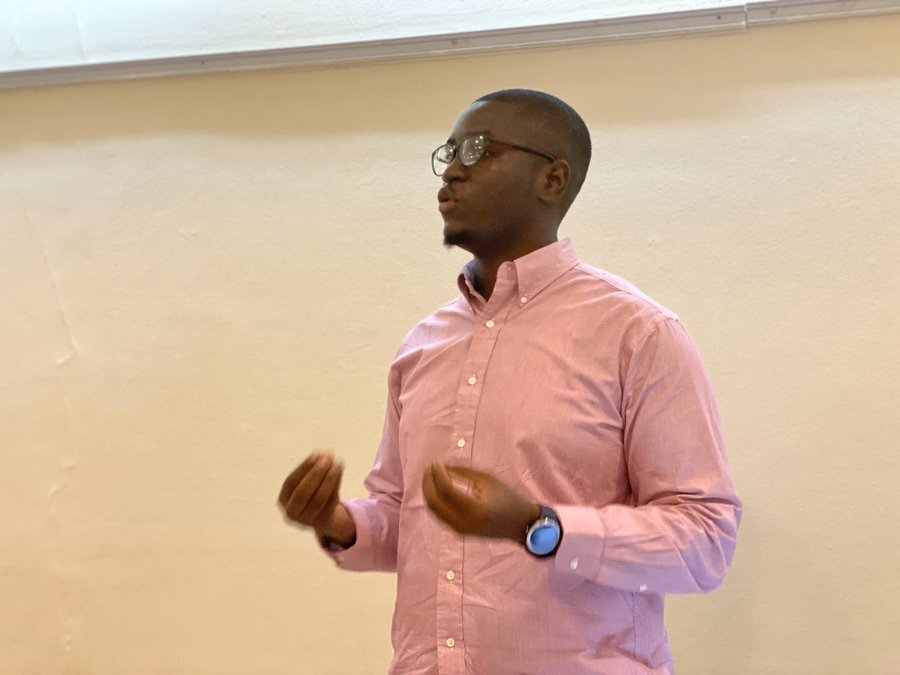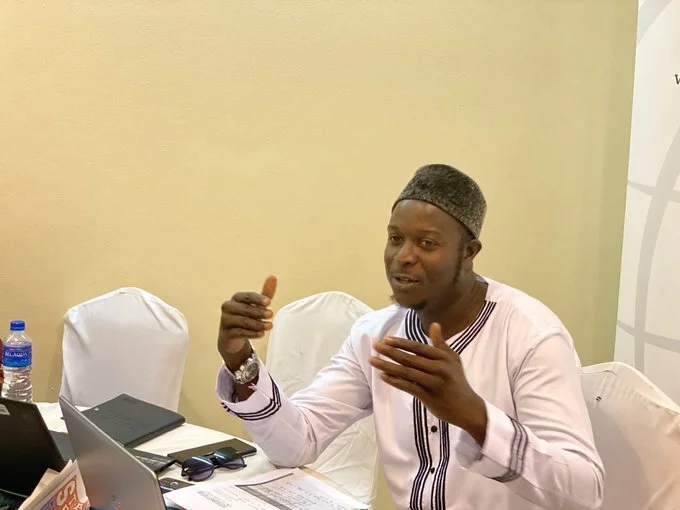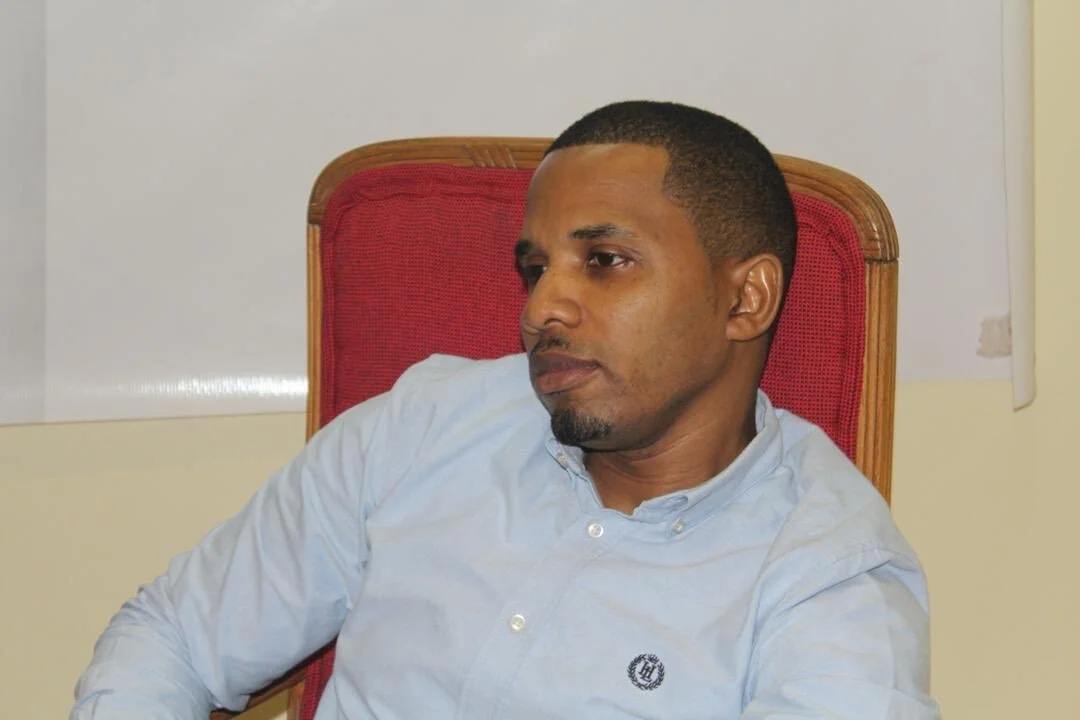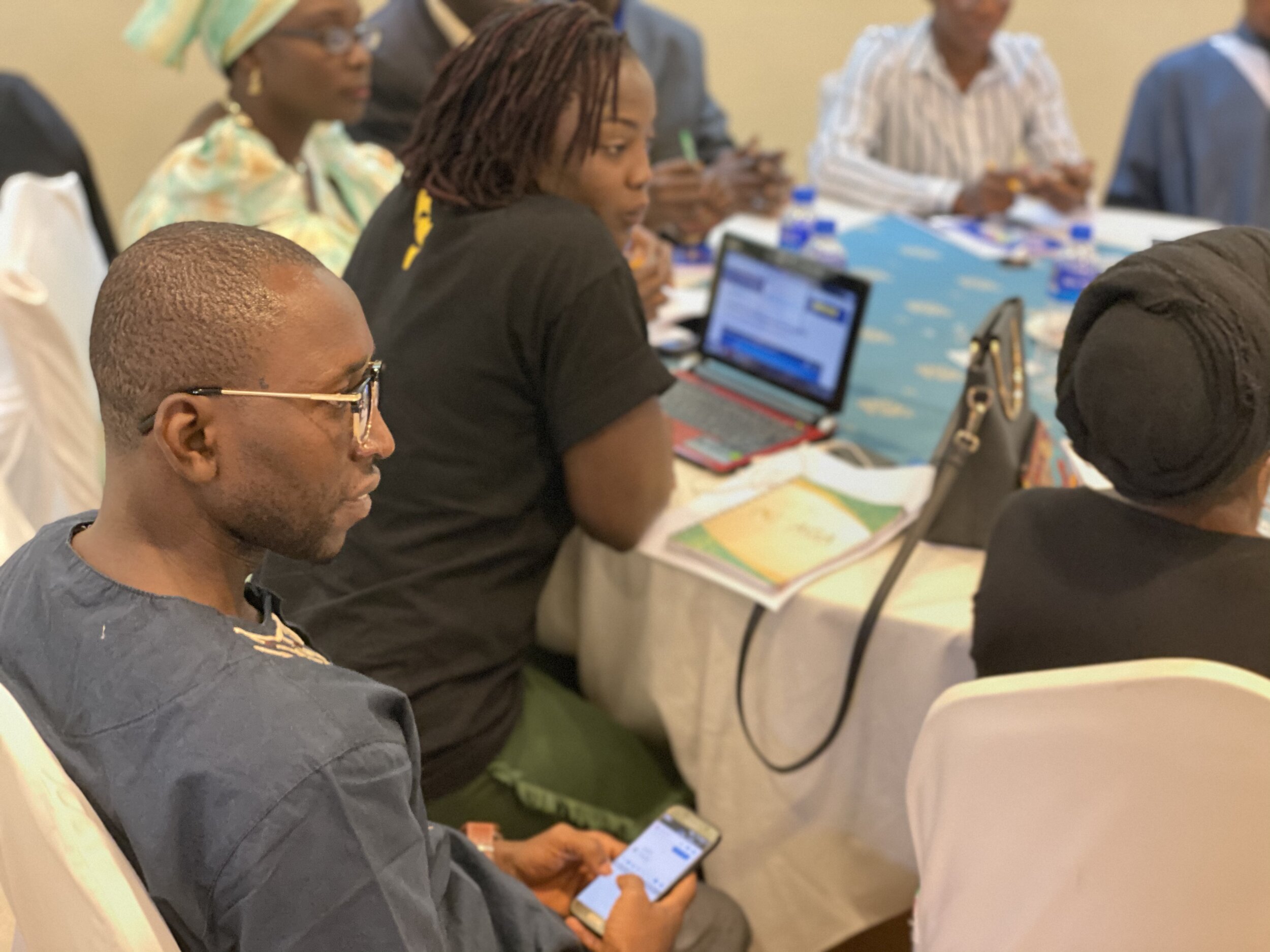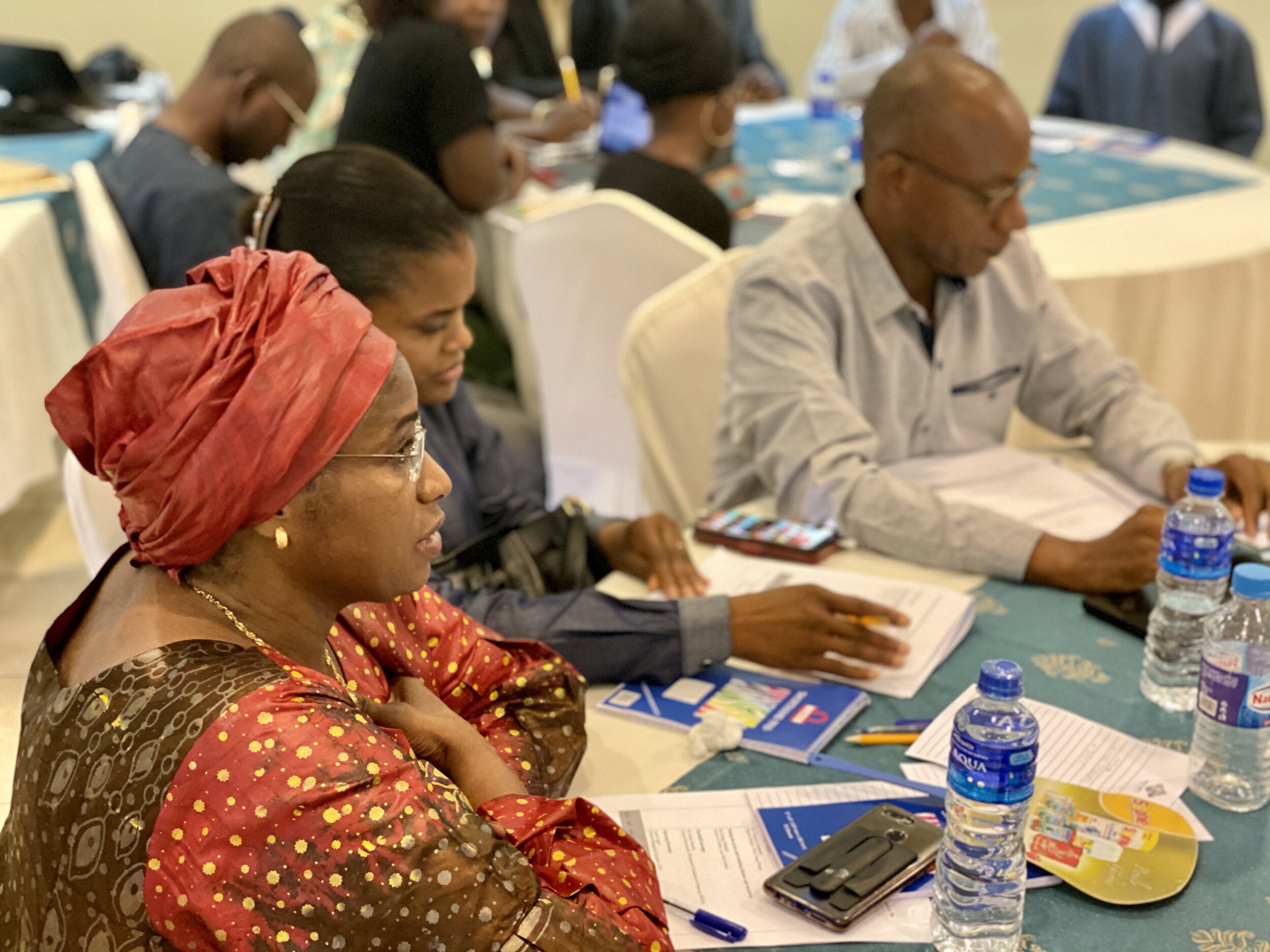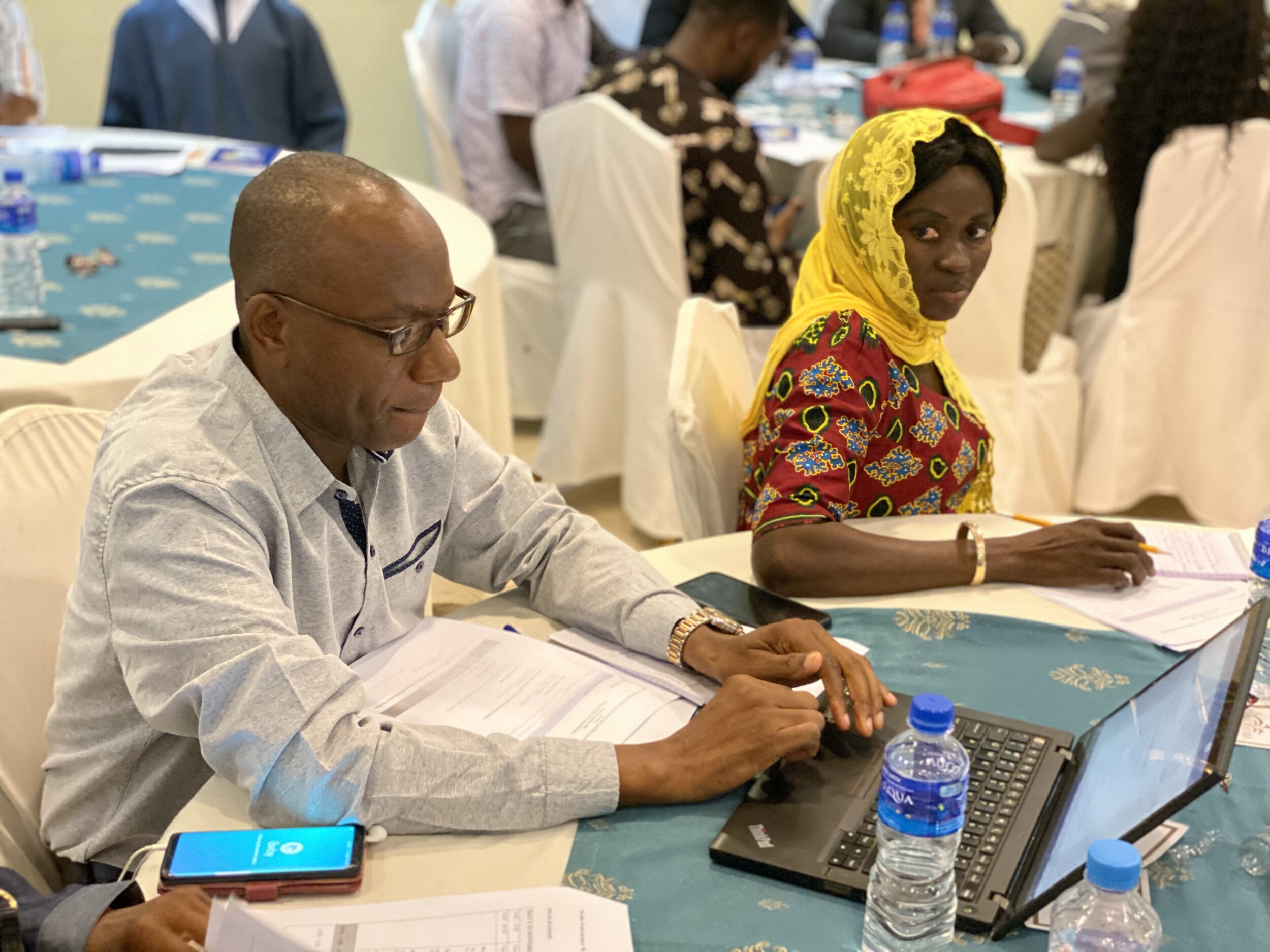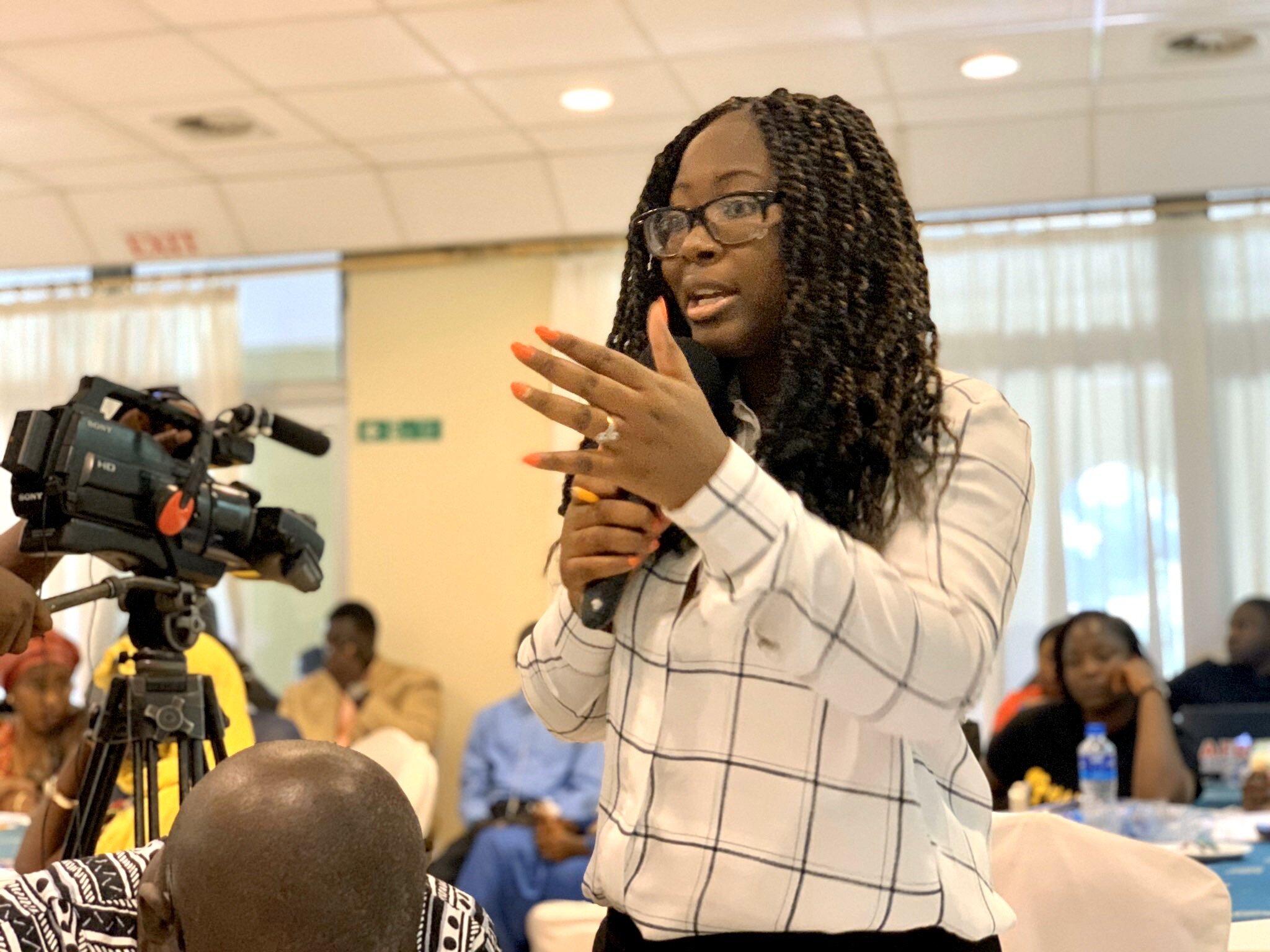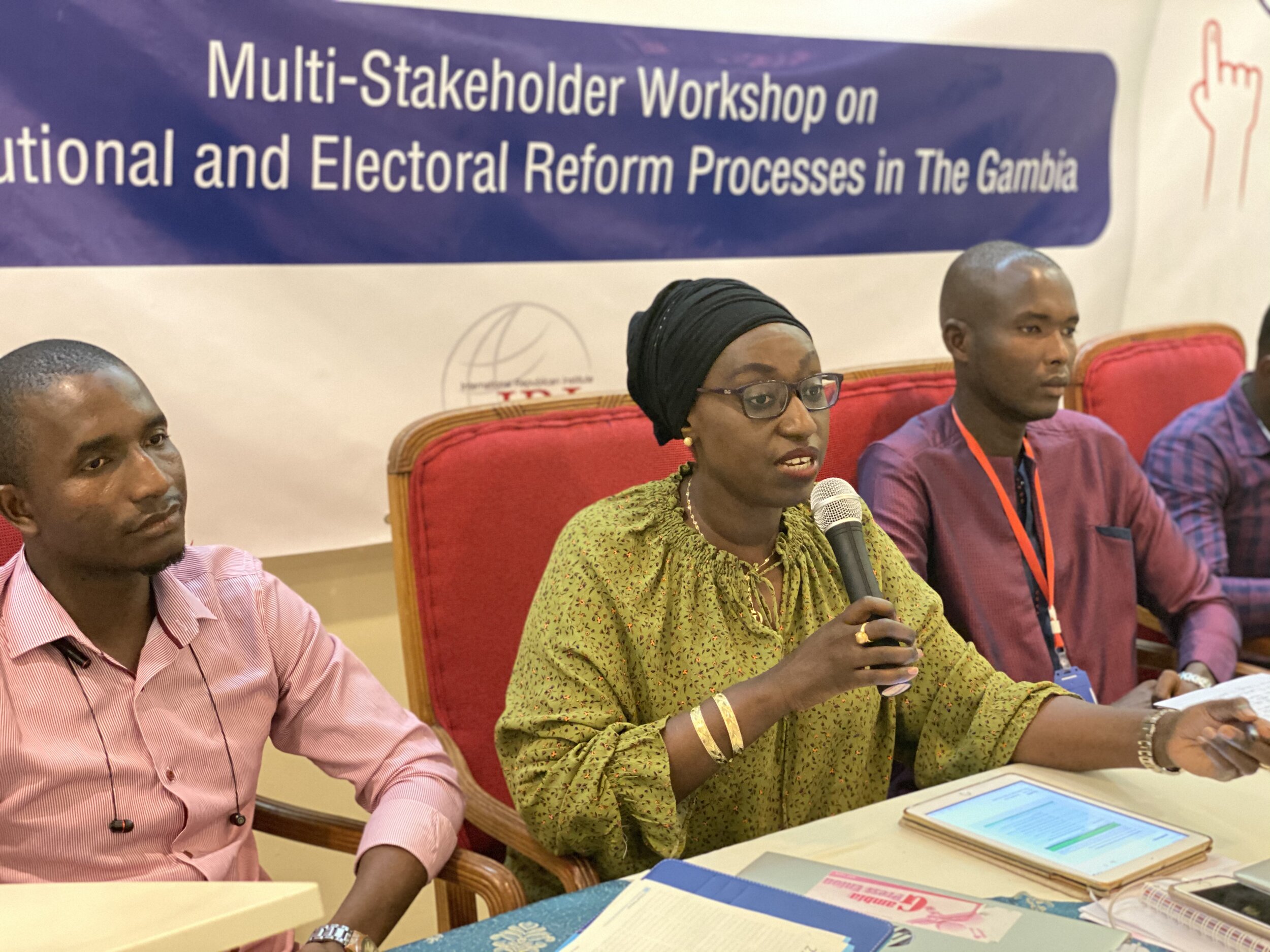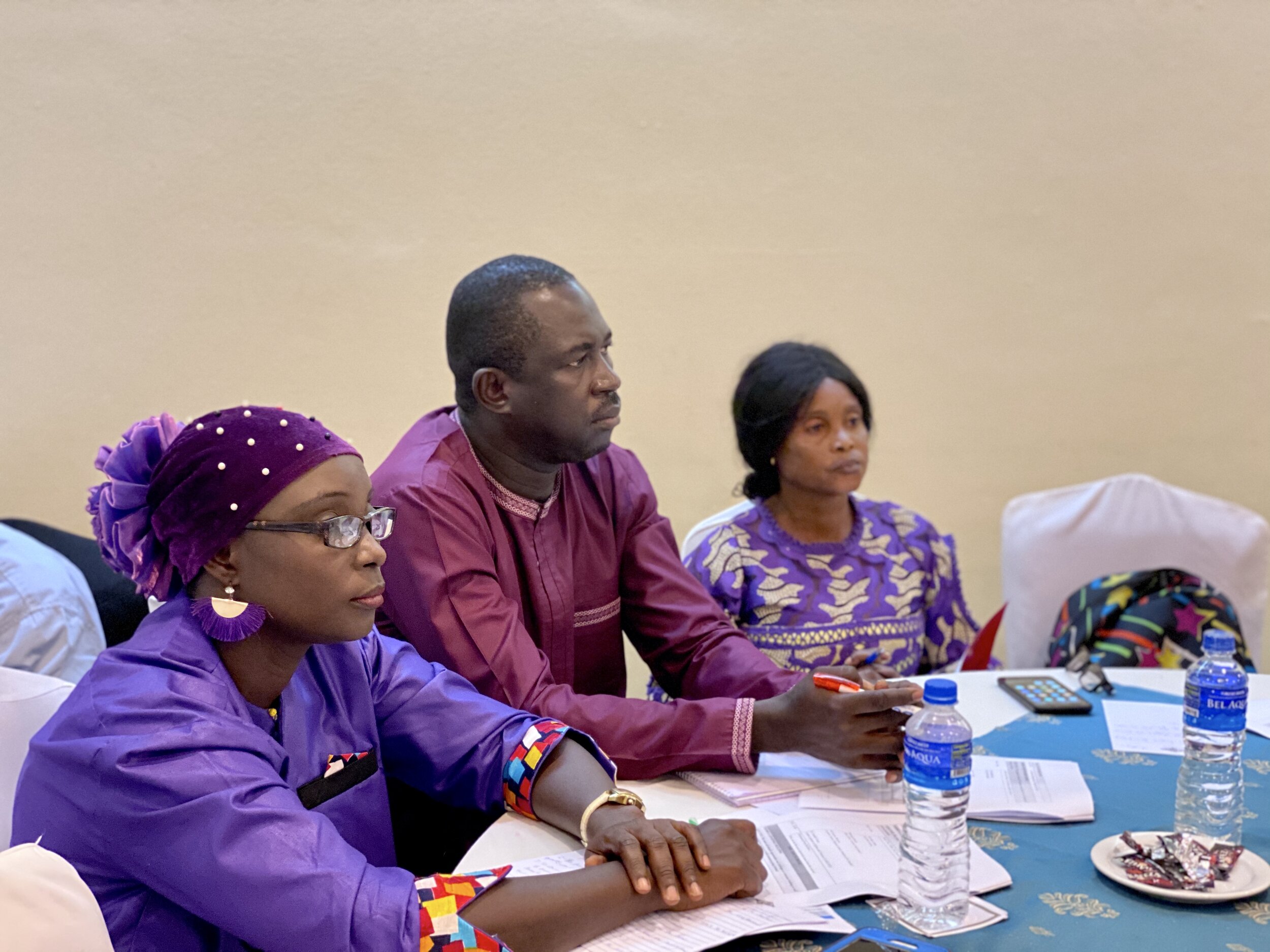In partnership with Think Young Women, we organized the National Multi-Stakeholder Workshop on Constitutional and Electoral Reform Processes in The Gambia with funding from International Republican Institute (IRI), took place at Kairaba Hotel, West Coast Region from Wednesday 13 November to Thursday 14 November 2019.
The meeting brought together about sixty key stakeholders including representatives from government ministries, National Assembly Members, Independent Electoral Commission (IEC), Local Government Authorities (LGAs), private sector, human rights advocates, civil society organizations, academia, community representatives and media.
The meeting provided a platform to update stakeholders on the key legal processes and timelines for the next steps after the submission of the draft constitution to the President. Currently, the Government of The Gambia is embarking on a complete overhaul of the 1997 Constitution and appointed a Commission to draft a new constitution for the country after the end of 22 years of dictatorship under the Jammeh regime. An Act of Parliament was passed in December 2017 i.e. Constitutional Review Commission Act (CRC Act, 2017) that established the Constitutional Review Commission (CRC) and its terms of reference. The Commission commenced work in June 2018 and is expected to submit a draft constitution and report to the President in December 2019. Prior to this, the Commission had announced that it will conduct a second and final round of public consultations in November 2019 before submitting the draft to the President.[1]
Against this background, the theme of the National Multi-Stakeholder Workshop on Constitutional and Electoral Reform Processes in The Gambia was: : #220Constitution: What next after the draft?
The first day of the workshop commenced with remarks from Ms. Satang Nabaneh, Founder and Editor at Law Hub Gambia. In her deliberation, she gave an overview of the workshop themes and intentions. She stated that the Law Hub Gambia intends to encourage rule of law and constitutionalism in The Gambia and went further to set out the key objectives of the workshop. She highlighted the need to identify the roles and responsibilities of the different stakeholders in the constitutional and electoral reform processes, to keep citizens informed and engaged in these important historic processes.
Additionally, she highlighted that the National Multi-Stakeholder meeting was designed to facilitate forward-looking debates and conversations, knowledge sharing, sector-wide institutional arrangements, policy and legal framework, strategic planning, networking and partnerships on the constitutional review process. Ms Nabaneh concluded her remarks by sharing the thoughts of Mun’gomba of the Constitutional Review Commission of Zambia who stated that:
“A constitution is not an ordinary piece of legislation. It is the people’s sovereign and inalienable right to determine the form of governance for our country by giving to ourselves a constitution of our own making.”
This was followed by a Goodwill message and Solidarity message from Mr. Madi Jobarteh, Country Representative at Westminster Foundation for Democracy, and Hannah Forster, Executive Director at African Centre for Democracy and Human Rights Studies respectively. Mr. Lamin Lighe, the Electoral Management Specialist at International Foundation for Electoral Services (IFES) in his opening statement, stated that the IFES would be providing technical assistance as the I.E.C. goes through a process of electoral reform. He concluded that we must engage every individual to be confident that this platform will provide the information on the transition and all the processes involved in the transition, adding that commitment is key, and the turnout has shown the commitment of stakeholders involved.
Keynote statement
Ms Satang Nabaneh delivered the keynote statement on the theme Constitutional reform process in The Gambia: The Way Forward
She argued that to avoid the pitfalls of the past including the outcomes of the 1996 National Consultative Committee. As well as the retrogressive actions taken on the draft report and draft constitution submitted by the then Constitutional Review Commission, which resulted in a constitution that did not meet our aspirations as Gambians, it becomes pertinent that this time around there is proactive and committed engagement by all citizens and citizen groups in the process. She addressed the question: What next After the collation of our 'wish list'?
She highlighted that the constitutional reform process is envisaged to provide us a new constitutional framework to deal with perennial ills such as dictatorship, repression, human rights violations, corruption and mismanagement of state property, and poverty.
Panels
Panel discussions were held on the first day to open conversations on the legal processes and timelines that will follow the submission of the draft constitution to the President. The first panel comprised of Ms. Maria Saine from the Law Hub Gambia, Siyat Gaye from the International Republican Institute, Yankuba Manjang, Constitutional Review Commission, and Papa Njie, Secretary General of the People’s Progressive Party. Two other panel discussions took place, centered on democracy building processes with focus on electoral reforms, as well as citizen consultation, engagement and education. It was noted that the IEC should make the necessary proposals for the electoral reform processes, and a civic education agenda should be considered by the National Centre for Civic Education in its plan.
On the second day, participants engaged in two final panel discussions on contentious issues emerging from the constitutional review processes and consensus building. This was followed by closing remarks from Ms. Robina Namusisi, the Resident Program Director, I.R.I. who thanked the Think Young Women and Law Hub Gambia teams for coming up with this timely engagement. She added that I.R.I. is in a front row in this process and are glad to participate in close partnership with IFES.
Event in national media
……
[1] The Draft Constitution was published by the CRC on 16 November 2019 and is opened for inputs until 15 December 2019, available https://crc220.org/wp-content/uploads/2015/12/CRC-DRAFT-CONSTITUTION.pdf.

